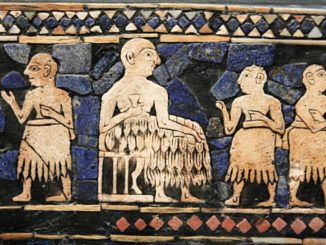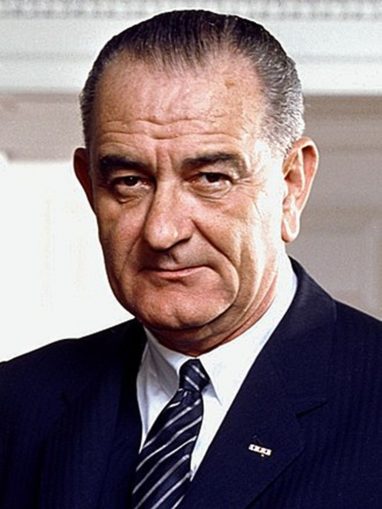
“I do understand power, whatever else may be said about me. I know where to look for it, and how to use it.” – Lyndon Johnson [The Years of Lyndon Johnson: Volume 3: Master of the Senate (2002) – p. v and xx]
“Within those confines, nonetheless, had emerged a certain pattern to the tactics – the politicking – of Lyndon Johnson. Perhaps the most significant aspect of the pattern was its lack of any discernible limits. Pragmatism had shaded into the morality of the ballot box, a morality in which nothing matters but victory and any maneuver that leads to victory is justified – into a morality that is amorality.” [The Years of Lyndon Johnson: Volume 1: The Path to Power (1982) – p. 190]
Robert Caro’s as-yet-unfinished series of books on former US President Lyndon Johnson is not only one of the great biographies but also one of the most important studies of power ever written. Stretching to an estimated two million words, Caro’s four volumes (he is currently working on what will be the fifth and final volume) provide a fascinating insight into the life of and complexities of Johnson’s character and his acts, some good, many bad, which shaped not just his life and the lives of those around him but the course of US and world history. There is considerable discussion of both Johnson’s lust for and use of power, with much revelatory detail concerning the often-underhand means used to attain it.
Caro’s fascination with the subject of power is clear from the titles of his books alone: two of his volumes of The Years of Lyndon Johnson (Volume 1: The Path to Power and Volume 4: The Passage of Power) contain the word, as does his other major biographical work which preceded his series on Johnson, a Pulitzer Prize-winner called The Power Broker: Robert Moses and the Fall of New York, about an official who despite being unelected managed to become arguably the most powerful man in New York for several decades. (Caro also won the Pulitzer for an installment of his study of Johnson, Volume 3: Master of the Senate). The author further released an audiobook called On Power in case anyone was still in doubt about his interest in the theme.
Johnson was complicated: in spite of his ruthless and vile behaviour, he was capable of displaying compassion, though only if it suited his ends; he would help others and sometimes go out of his way but he wanted them to see it, to be grateful; he had a sense of inferiority at his lack of sophistication and education, particularly feeling as Vice President that the Kennedys’ elitist ‘Camelot’ group looked down on him, yet he was also a braggart about his own achievements; he wanted personal wealth, yet at a low point he would not accept a lucrative oil position that was handed to him on a plate for fear of the impact it might have on his political ambitions. At the same time, Johnson’s primary motivations were simple: he was driven, partly out of a sense of destiny and also from insecurity and the constant fear of humiliation instilled in him in his youth, by the quest to be somebody, to acquire power and to wield it – and as will be seen, he didn’t care what he had to do in order to attain it.
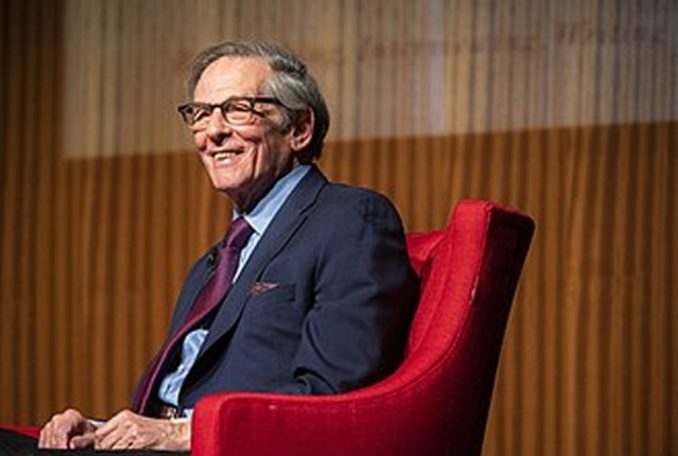
As he got older, he did not grow out of this behaviour: on the contrary, it became more pronounced. He would become a “surrogate son” to several men, including Sam Rayburn, the influential Congressman who became Leader of the House of Representatives and later Speaker, though Johnson would betray Rayburn’s trust at one point to gain influence for himself; and to Richard Russell, the Southern Senator who would help Johnson rise in the Senate and break the traditional hierarchical structure of seniority that prevailed there – an important development that would allow Johnson to gain power and become Minority and later Majority Leader, with clout including the scheduling of Senate business and the dispensing of committee positions as he wished – though Russell’s aiding of Johnson’s rise would be to the former’s cost too as Johnson would later push through civil rights legislation which Russell was opposed to.
Johnson didn’t seem to care what he had to do or who he might upset if it meant him attaining further standing and influence. And if he had the ability to betray two of the men who did so much to help him, his attitude towards his subordinates and those he didn’t have to seek favours from was often far worse. But it wasn’t just in these ways that he marked himself out: he became a highly skilled, crafty and manipulative operator, in life and particularly in politics, with an astuteness for spotting opportunities for power that others had never seen before, partly through a genius for political craft but also due to his willingness to stoop to levels previously unthinkable to others.
One of the most striking things about Johnson’s lust for power and ruthless opportunism that arises from Caro’s work is his attitude towards elections and his direct involvement in a number of manipulated and in some cases blatantly rigged and stolen campaigns: from his time at teacher training college, where he was first able to put underhand and secretive strategies into practice in student elections, including illegal voting and even blackmail; then when working as a congressional aide, when he repeated a number of the tactics he had used in college to increase votes and even went so far as to assist a Congressman by directly dispensing money to immigrant voters; and later in two attempts to obtain the Democratic nomination for a Texas Senate seat, using illegally large campaign contributions, lies, threats towards district leaders and payments to local bosses to guarantee they would ‘find’ the necessary votes.
He also impacted on other elections, using his abilities and financial backing, provided by wealthy businessmen, who he had helped with his political influence, to assist himself and others (though this too ultimately meant assisting him as the recipients of his ‘generosity’ owed and relied upon him thereafter). Even in the case of the 1960 US Presidential Election, where he was John Fitzgerald Kennedy’s running-mate, vote-rigging has long been alleged regarding the votes from Illinois and Texas that helped to swing the election in Kennedy’s favour, something that seems likely to have been influenced by the illegal methods he employed, directly or indirectly, in the latter state.
In view of recent events on the US political scene, it seems instructive to focus on this side of Johnson – as will be seen, there are striking similarities, whether they be in terms of manipulation of the electoral system, the levels of corruption involved, the kinds of personalities, influences and issues at play, or the willingness to stop at nothing to attain power.
Early Life
Born in 1908 in Texas, the young Johnson would quickly display the need to be at the centre of things, to lead and to dominate, displaying early on his forceful personality. When playing baseball with other children using his ball, if he wasn’t getting his own way he would take the ball and go home. He became convinced of his destiny when he was still young and indicated to a number of people that he saw himself becoming President. He had a plan consisting of three steps towards his goal: election to the House of Representatives, then to the Senate and finally to the Presidency. He was a man in a hurry due to the fact that the men in his family had a tendency to die in their late fifties and sixties. (Johnson was right to think his own life would be cut short: he would die at the age of 64.)
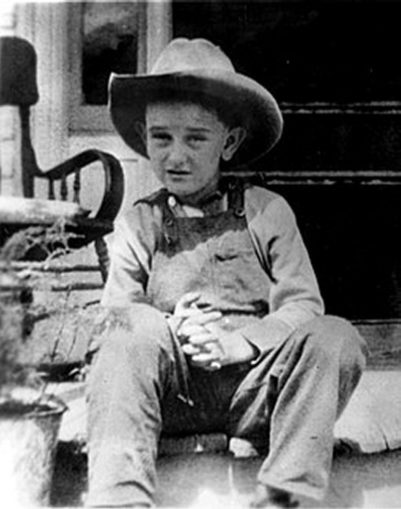
In fact it would become increasingly difficult for contemporaries to know precisely what he stood for. He had a knack of telling one person one thing and another the complete opposite, yet he largely managed to get away with such behaviour. It would become a pattern, one that would allow him to gain considerable support from opposing interests. He was able to portray himself to liberals as being ardently in favour of President Franklin Roosevelt’s New Deal and then to Anti-New Deal businessmen as being against it; later, he would ingratiate himself with Southern anti-civil rights Senators whilst plotting to push through legislation on those same issues and reaching out to civil rights proponents. Often though, especially in his early career, he avoided being tied down to positions at all so he could be as flexible as possible. His primary motivation was whatever would boost his own standing and he seemed to believe in little else. In this, one is tempted to think that he would have fitted in very well with most of today’s politicians.
Sam, despite his farming failures, had also been a highly respected Senator in the Texas State Senate, one who couldn’t be bought by big business and oil interests, who went out of his way to help the poor and aged. His son became engaged in politics because of his father (and developed from him a useful knack for vote-counting) but although he displayed some compassion for the poor during his lifetime and could relate to them, he didn’t shy away from big business or corruption, only avoiding it if he felt it would hurt his reputation or political ambitions. These ambitions were not for his future in Texas politics, where oil associations were common, but for the very pinnacle of national political achievement, the Presidency.
College Politics
After a listless youth where he failed to apply himself and scraped through school, after several misadventures Johnson decided to go to a nearby teacher training college in San Marcos, which for many young people in the area was their only chance of advancement and hope of escape from a very poor area and the difficult lives they led there.
Using his “surrogate son” methods, which he would continue to hone as the years went by, he managed to ingratiate himself with the college president, Cecil “Prexy” Evans, among others. He cultivated the relationship with Evans to the extent that within weeks of his arrival he had a paid position working in a role that was newly-created for him. This shaped for him a position of some power, with which he was able to exert influence and bestow favours. He could determine which students received paid jobs on the campus. As Caro points out, this was real power because on an impoverished campus a job would provide enough income to pay a student’s tuition. Johnson was willing to do whatever he could to help those who needed jobs, but importantly, they had to ask. What mattered to him, one fellow student felt, “was the acknowledgment – the deferential, face-to-face, acknowledgment – that he had the power.” [Vol. 1 – p. 193]
Johnson worked for the campus newspaper but although he was liked by the faculty he wasn’t by many of the students, having been nicknamed “Bull” because of his tendency to boast, brag and “talk big” as well as his fawning over the faculty and overbearing attitude towards his fellow students.
His lack of popularity meant that he missed out on being a member of the college’s “secret organisation”, a group called the “Black Stars”, popular students, generally the athletes, who tended to win most of the class offices. Johnson joined an alternative secret faction, called the “White Stars” who happened to find him entertaining.
Johnson quickly managed to bend the organisation to his will, using it to enter into campus politics. He was able to deploy his persuasive ability to obtain the needed votes to win a class election for a favoured candidate (though not himself – he wisely stood back due to his unpopularity and through the wish to keep his manipulations secret). The Black Stars hadn’t lost an election before and planned to up their game but they were naïve, caught off-guard “because elections had been conducted honestly in the past, no one was prepared for something different.” [Vol. 1 – p. 178] Johnson was able to take advantage of relaxed procedures with no set rules. Having some of his supporters in charge of calling votes, they could run the elections. Often candidates would only be voted for by their class, but he had his White Stars vote in every class election, multiplying their votes. They would go from class to class as votes were being taken and where fewer Black Star supporters had gathered, pushing hurriedly for the votes to be made, shouting their ‘Ayes’ so loudly that it seemed their candidate had the most support. Junior students would vote in senior elections too, something they were not strictly allowed to do. Other techniques like blackmail were also resorted to, in the case of one female candidate who was persuaded to drop out lest a minor indiscretion should be publicised.
Part of his success was that Johnson, according to his younger brother Sam, had correctly sized up the fact of “the little man’s resentment of the big man.” [Vol 1 – p. 183] The Black Stars did not realise there was another group organised against them, largely because of Johnson’s emphasis on secrecy, a trait that would become a key one as his life evolved. Johnson, with no political experience, in little more than a year, successfully managed to manipulate a campus political structure – indeed he essentially created it and held more influence over it than any other student.
Congressional Aide and the “Little Congress”
Johnson’s political talents started to gain him attention. After a spell teaching, his ability for political campaigning and organisation came to be spotted by Texan political figures and his name became known to newly-elected Congressman Richard Kleberg, for whom he went on to work in Washington as an administrative aide. Johnson worked hard, though he arguably worked those under him just as hard, if not harder, which took a psychological toll for some of them as he drove them fiercely.
As with his college experiences, his genius for spotting opportunities to advance himself and to create power from previously overlooked situations and institutions once again made itself known in the shape of what was known as the “Little Congress”. This organisation had been formed in 1919 with the intention of providing congressional secretaries with experience of public speaking, modelled on the House of Representatives and holding debates under House rules. But its significance had waned, having become little more than a poorly-attended social club. Johnson asked a few carefully selected congressional staff members to help him become the Speaker of the Little Congress. As with Congress itself, there was a seniority line that should have been followed but Johnson saw a way of getting around this. Using secrecy to shield his intentions from older secretaries, he contacted a number of the newer ones, who he figured, through his vote counting ability, could give him votes he needed.
But he discovered something else: although it was generally thought that only secretaries could be members of (and thus vote in) the Little Congress, it turned out that technically anyone on the legislative payroll, including mailmen, policemen and elevator operators appointed under congressional patronage could also be considered eligible. After the election, which he won, a number of people questioned the veracity of Johnson’s victory, saying that many of the voters were not in fact eligible to vote as they had not paid their dues and a number might not have been appointed under congressional patronage. (Johnson’s supporters, they argued, had simply rounded up every Capitol Hill employee they could find.) It was stated by one person who knew him that he “stole that election.” “If the charge was true”, Caro states, “the election was, of course, the second he had stolen.” [Vol 1 – p. 262]
This position was turned into something significant by Johnson. He organised debates and held them on a more regular basis, inviting prominent speakers to address them. As the views of congressional aides in the debates that took place tended to reflect those of their bosses on pending legislation and these were the people helping to prepare their bosses arguments for upcoming House debates, reporters began to take a keen interest, whilst even members of Congress would turn up. Johnson had significantly elevated himself above the crowd.
Changes to the rules would mean greater scrutiny of procedures and a candidate for Speaker later supported by Johnson (he couldn’t stand for more than a year himself as there was a term limit) would end up defeated due to a number of votes by non-members being disallowed. Johnson soon lost interest in the organisation, reflecting another trait he had shown in childhood, whereby if he couldn’t lead, he didn’t want to play.
A further display of power and corruption was shown during this time. Whilst still a congressional aide, Johnson became involved in even more blatant illegalities when he assisted another Congressman, Maury Maverick, by directly purchasing votes, sitting in a hotel room handing out one- and five-dollar bills to Mexican voters. He had graduated from dispensing jobs to dispensing money directly to voters. He would later purchase votes on an even grander scale.
First Congressional Campaign
Johnson’s influence continued to grow after heading up the Texas branch of the National Youth Administration, an organisation formed as part of President Franklin Delano Roosevelt’s New Deal, designed to provide jobs for young people who were out of work. The scheme’s supposed successes were not as significant as Johnson tried to portray them but it gained him further recognition and power, which was what mattered to him.
In February 1937, upon the death of a Texan Congressman, James P. Buchanan, he took what was the risky step of announcing his candidacy (at a time when the dead Buchanan’s wife had considered standing – if she had done so, she would likely have been unopposed out of compassion for her circumstances but Johnson’s boldness in announcing his candidacy first, inspired by his father’s advice to do so, dissuaded her from running). It was the opportunity he had been waiting for and he would put in an immense effort against a number of far more experienced political figures with higher profiles than him.
Part of Johnson’s campaign was to announce his support for President Roosevelt’s plans to pack the Supreme Court, a highly controversial measure that would ultimately fail, but one which would prove popular in Tenth District in Texas, where Johnson was standing. Support for Roosevelt in this part of the state in particular was strong. It helped Johnson to mark himself out, to identify himself with a cause which a number of his opponents were against, even though they generally tended to support Roosevelt himself.
Funding was forthcoming due to connections Johnson had developed with business, particularly through the lawyer Alvin Wirtz, who was able to tap lobbying funds from oil companies he represented and who Johnson had been able to assist as a congressional aide. Money played an important part in buying election literature, radio and newspaper advertising to get his name known, social events like barbecues as well as the buying of votes by providing money to the leaders of the substantial black and Czech communities, whose leaders would instruct their communities how to vote. Johnson considerably outspent his opponents and expenditures were likely far higher than those declared.
But Johnson was still an underdog. He showed great astuteness in his reading of the situation, seeing that there were many voters on the fringes of the district who were ignored by the other candidates, who preferred to focus on major population centres like Austin. Rather than concentrate his efforts on the big cities and towns, where he had little chance against better-known candidates who were bound to dominate, Johnson went all-out in his efforts to win over rural and traditionally-ignored voters, the kinds of people who had never even met a political candidate before. Despite health issues, he spent many long hours each day travelling in a car with a driver along roads that were in some cases little more than dirt tracks, just to say a few words to and shake hands with a farmer. He knew how to win people over, to press the flesh, to give the personal touch.
He made himself dreadfully ill in the process, being hospitalised at the end of the campaign through a mixture of exhaustion and a nearly ruptured appendix, but his campaign worked: Johnson ended up with 8,280 votes – 3,000 more than his nearest opponent. He was elected at the age of just 28, winning a race that virtually no one had thought it possible for him to win. He gained a number of votes through money and illegal means, but he had also put in immense effort, whilst the complacency of the other candidates cost them: voters who had been ignored for so long ended up bringing their influence to bear the only way they could, at the ballot box; it is a lesson that today’s political elites have yet to grasp.
Money and Power
Johnson would develop a close and mutually-beneficial relationship with the company Brown & Root, who initially built roads and then expanded into dam-building and other construction ventures. The Congressman was able to provide assistance to the company by helping them to get the government approval necessary to obtain the funds to complete a dam scheme they were working on, a project which was technically illegal as the land was not owned by the Bureau of Reclamation which oversaw the project. Brown & Root would become a major source of financial backing for Johnson and would use their influence to gain further financing and support for him among their other business contacts. Johnson for his part would use his influence to help the company grow and to obtain defence contracts which would be highly lucrative during the Second World War (the company had no prior experience in this area) and later during the Vietnam War and it would become one of the world’s biggest construction companies. Brown & Root had a close relationship with the Humble Oil Company, which owned a company called Halliburton Oil Well Cementing Company. The Halliburton Company would buy Brown & Root in 1962, which would later become Kellogg Brown & Root and then KBR Inc. The company’s connections to government and contracts from powerful men at the heart of government would continue long after Johnson’s lifetime.
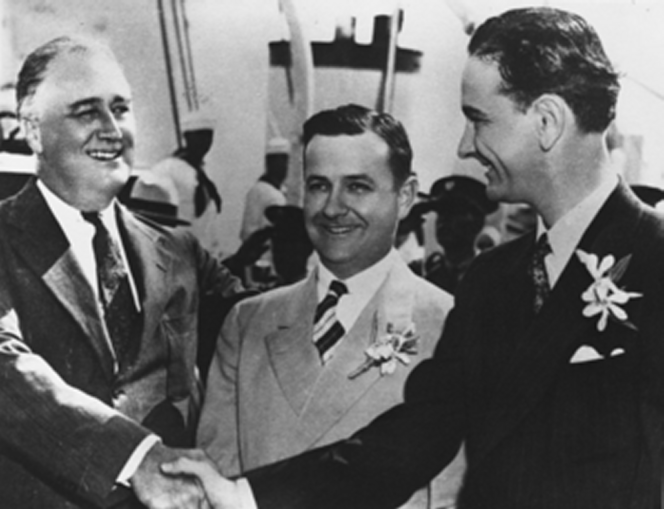
Johnson’s funding also helped a number congressional candidates who were short of money during his time assisting the Democratic Congressional Campaign Committee. Money, which had been in short supply for the Democrats, made a significant difference and Johnson made sure that the candidates knew that he was the one who deserved the credit for the donations. He had tapped into a new and considerable source of funding. Several candidates who had expected to lose ended up victorious and they knew who to thank. Johnson, although unlikable to a number of them, had bought their gratitude and had made himself necessary. Despite his relationships with men like Roosevelt, Rayburn and others and his own position in Congress, his new power did not derive from these things: “His power was simply the power of money.” [Vol. 1 – p. 659]
In the next part we will look at Johnson’s first campaign to gain the Democratic nomination for a Senate seat. As we shall see, there are striking similarities with contemporary US politics. Furthermore, Johnson’s amorality would continue to deepen and his efforts to attain victory and power would become increasingly audacious… and illegal.
Further reading:
Robert A. Caro – The Years of Lyndon Johnson, Volume 1: The Path to Power (1982)
Robert A. Caro – The Years of Lyndon Johnson, Volume 2: Means of Ascent (1990)
Robert A. Caro – The Years of Lyndon Johnson, Volume 3: Master of the Senate (2002)
Robert A. Caro – The Years of Lyndon Johnson, Volume 4: The Passage of Power (2012)
Robert A. Caro – The Power Broker: Robert Moses and the Fall of New York (1974)
Robert A. Caro – On Power [audiobook] (2017)
© The Black Swan 2020
The Goodnight Vienna Audio file


